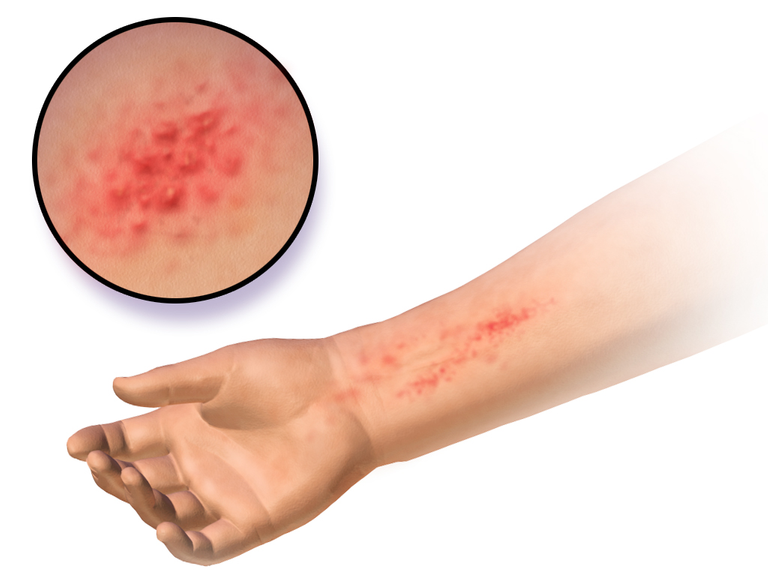The Allergy Enigma; When Harmless Becomes Harmful
It's a beautiful afternoon, and you find yourself at a resort. As you stroll through the garden, suddenly your eyes start to itch, you begin to sneeze, and your nose feels chapped It seems like your immune system has turned against you, causing these allergic reactions that can be triggered by a variety of substances, ranging from blooming flowers and plants to beloved pets like dogs or cats. Interestingly, different people find relief in various remedies, such as Claritin, antihistamines, decongestants, corticosteroids, loratadine, or antileukotrienes.
Allergies didn't just start today, they have been existing for over 100 years ago and these allergies increases over time and it's disconcerting how our bodies react to substances that should be harmless. Take, for example, the severe reactions some individuals may experience or the potential risk of anaphylactic shock simply from touching or consuming eggs or peanuts, which, in theory, should not have a detrimental effect on our immune system.
Personally, I do not have an allergy. My friend will say that the poor and average in Nigeria do not have allergies because our body is wired to adapt to eating anything we can get, and when we go to gardens, we do not like to miss out on any fun thing. Well, that's his own thought and in reality, I haven't seen an average class Nigeria suffer an allergy. The closest we can get, is to cough after spraying insecticides. That said let's continue with how allergies are a thing in our immune system
Studying, I realize that Deep within our immune system, we have B-lymphocytes, a type of white blood cell that plays a crucial role in protecting our bodies against foreign molecules and substances. When these cells identify foreign molecules with specific markers, they produce antibodies to attack them. Among these antibodies are IgG, IgE, IgM, IgA, and IgD, with IgE playing a specific role in allergic responses.
To better grasp the workings of IgE, let's consider the example of a peanut allergy. If you haven't seen one in reality, you can picture that hollywood movie you saw where someone was choking on something. When an individual allergic to peanuts consumes them, their body responds by producing IgE antibodies that specifically target peanuts. These antibodies attach themselves to mast cells, which house histamines, key contributors to the allergic response. Once the initial exposure occurs, these mast cell antibodies remain dormant until the allergy is triggered again. I witnessed an allergic reaction of a girl to peanut. Anyways, she is a daughter of a business mogul, so going by my friends hypothesis, I think it is the rich that really have allergies (just joking please), but just the touch was what landed her at the hospital.
Upon reexposure to the allergen, the antibodies in the mast cells immediately bind to them, alerting the immune system to the presence of a foreign body that needs to be eliminated. Unfortunately, in the process of attacking the allergen, the immune system may also inadvertently attack the mast cells, leading to the release of histamines. These histamines are responsible for the allergic symptoms we experience, and in severe cases, they can be life-threatening.
Allergic response can vary depending on the allergy but some people can suffer from breathing difficulty, swollen body tissues, drop in blood pressure and anaphylactic shock. The release of histamine triggers a cascade of responses, such as upper gastrointestinal tract discomfort leading to vomiting, lower gastrointestinal tract disturbances resulting in diarrhea, respiratory tract irritation leading to coughing, nasal passage irritation causing sneezing, and skin rashes accompanied by itching. These allergic response can lead to death and in so many cases, epinephrine is used to treat people with such responses. This doesn't mean that the person who just survived an allergic response is safe in the future, rather a next exposure to that allergy would be worse.
Let's ask ourselves the question, Why does our body react to substances that are not inherently harmful? Scientists have engaged in debates and research on this topic, suggesting that some allergenic molecules resemble those found in parasitic worms, which are targeted by IgE antibodies. For example, studies have shown similarities between molecules released by pollen plants and those found in helminth parasites. While IgE's recognition of allergens as parasitic worms due to protein similarities explains some allergies, there are cases like nickel or penicillin allergies that don't mimic parasitic worm proteins.
Allergic responses can be seen as our body's mechanism for expelling potentially toxic or poisonous substances. Although many allergies themselves are not directly toxic, specific components associated with allergens can contribute to their overall toxicity. For example, fungal spores present in hay dust, paralytic toxins from algae and plankton contaminating shellfish, and aflatoxins from fungi contaminating grains and peanuts are known to provoke allergic reactions.
Research on allergies is ongoing, and it's important to recognize that they serve a purpose in keeping us safe by combating toxins. So, while allergies can be troublesome, we should view them as a defense mechanism of our body.
Reference
https://www.ncbi.nlm.nih.gov/pmc/articles/PMC3924148/
https://www.ncbi.nlm.nih.gov/pmc/articles/PMC4626114/
https://www.ncbi.nlm.nih.gov/pmc/articles/PMC5682104/
https://pubmed.ncbi.nlm.nih.gov/2052671/
https://www.ncbi.nlm.nih.gov/pmc/articles/PMC4214967/
https://www.intechopen.com/chapters/19110
https://www.ncbi.nlm.nih.gov/books/NBK447112/

Hi, I am Tobi a writer, speaker, relationship blogger, and lover of good music. I love making friends and learning from people. Want to hear me speak on relationships and general life issues, you can find my youtube channel where you can listen and watch any episode for free, please do not forget to subscribe, friends. I sincerely appreciate every love I get from here, kindly do well to keep them coming.


Yay! 🤗
Your content has been boosted with Ecency Points, by @oluwatobiloba.
Use Ecency daily to boost your growth on platform!
Support Ecency
Vote for new Proposal
Delegate HP and earn more
Thanks for your contribution to the STEMsocial community. Feel free to join us on discord to get to know the rest of us!
Please consider delegating to the @stemsocial account (85% of the curation rewards are returned).
Thanks for including @stemsocial as a beneficiary, which gives you stronger support.